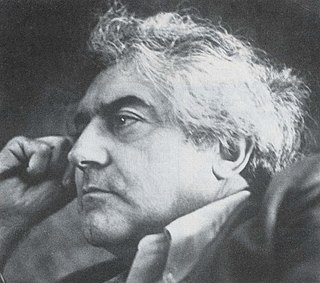A Quote by Bertrand Russell
The camera is as subjective as we are.
Quote Topics
Related Quotes
Change is always subjective. All through evolution you find that the conquest of nature comes by change in the subject. Apply this to religion and morality, and you will find that the conquest of evil comes by the change in the subjective alone. That is how the Advaitic system gets its whole force, on the subjective side of man.
The problem is one of opposition between subjective and objective points of view. There is a tendency to seek an objective account of everything before admitting its reality. But often what appears to a more subjective point of view cannot be accounted for in this way. So either the objective conception of the world is incomplete, or the subjective involves illusions that should be rejected.
The camera has a mind of its own--its own point of view. Then the human bearer of time stumbles into the camera's gaze--the camera's domain of pristine space hitherto untraversed is now contaminated by human temporality. Intrusion occurs, but the camera remains transfixed by its object. It doesn't care. The camera has no human fears.



































